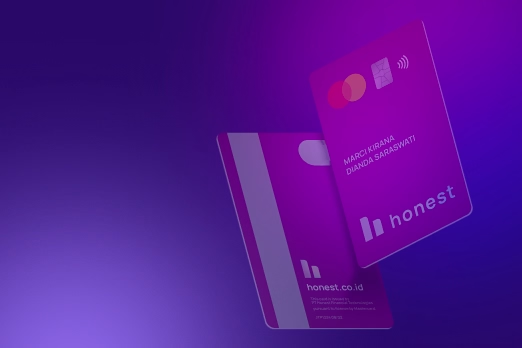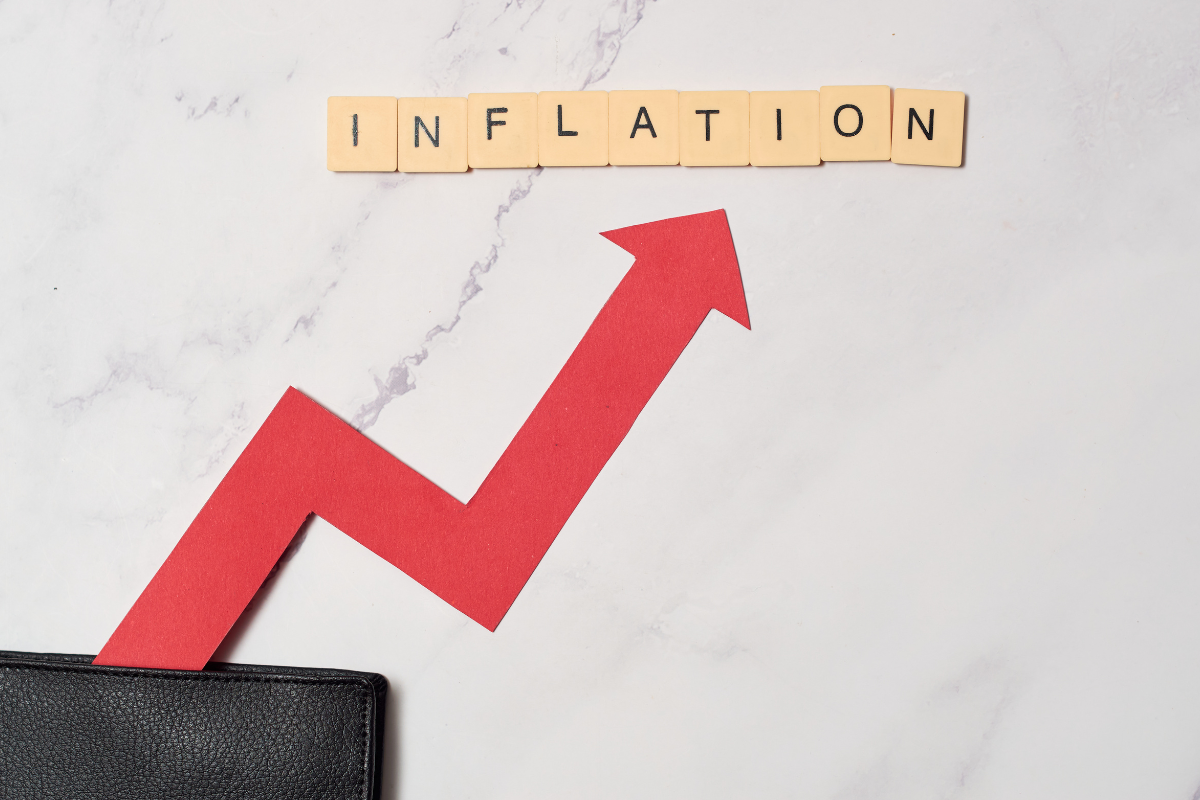What is inflation? Its causes, impacts & how to deal with it
Have you ever felt like the money in your wallet runs out quickly, even though you don't feel like you've spent too much? For example, you used to buy fried rice at your favorite stall for only 10 thousand, but now you have to pay 15 thousand for the same portion. Well, this phenomenon is not just about rising prices, but it has something to do with inflation.
Inflation is like an invisible "enemy" to your wallet, but it has a real effect. So, in this article, we will discuss what inflation actually is, why it happens, how it impacts daily life, and of course, how to deal with it without stress. Read on below!
Definition of inflation

Inflation is a condition where the prices of goods and services generally and continuously increase over a certain period. So, if you feel that the money that used to be enough to buy many things now seems insufficient, it's because our purchasing power has decreased due to inflation.
Why is that? Because the value of our money becomes smaller when compared to the price of goods. For example, with Rp50 thousand, you used to be able to buy groceries for a week, but now it might only be enough for three days. Well, those are signs of inflation.
But don't worry, inflation is not always bad. If the increase is controlled, it is actually a sign of a developing economy. Problems only arise if inflation soars uncontrollably, making the prices of goods difficult to afford.
Causes of inflation
Inflation doesn't just appear out of nowhere, you know. There are several things that make prices keep rising until we feel like expenses are difficult to control. Let's discuss the causes one by one!
1. Drastic increase in demand (demand-pull inflation)
The cause of inflation can be a drastic increase in demand, or what is commonly called demand-pull inflation. This happens when many people want to buy something, but the available stock of goods or services is not enough to meet all that demand. As a result, prices go up due to competition among buyers who want to get these goods.
For example, during the holiday season, the price of plane tickets and hotel rooms skyrockets. Why? Because everyone needs tickets and rooms at the same time, while the number is limited. This condition automatically pushes prices up to balance the demand, which is greater than the supply.
2. Increase in production costs (cost-push inflation)
Besides a drastic increase in demand, an increase in production costs can also cause inflation. If the cost of making goods goes up, the selling price will automatically go up too. For example, if fuel prices rise, factories have to spend more on transportation, and eventually, product prices will also increase.
3. Too much money in circulation (monetary inflation)
If too much money is in circulation, this can be a reason why inflation occurs. Imagine if suddenly there is a lot of money in the market, but the goods or services sold do not increase. The value of money decreases, and the prices of goods go up. This often happens if the government prints a large amount of money without control.
4. Expensive imports (imported inflation)
If the price of imported goods increases, local goods that use raw materials from abroad also become more expensive. For example, if the world price of wheat rises, the bread we buy here will automatically become more expensive.
5. Public expectations
Sometimes, inflation also occurs due to people's "hopes" or expectations. For example, traders think prices will rise next month, so they set higher prices now. This eventually creates a domino effect.
Impact of inflation on the economy

Inflation is like a double-edged sword, it can have positive sides, but it often complicates the economy. Well, here are its three main impacts!
1. Decreased purchasing power
The impact of inflation can cause a decrease in people's purchasing power. If prices continue to rise, but incomes do not follow, then purchasing power decreases. The money that used to be enough to buy many things now feels only enough for a few needs. As a result, people are more selective in spending, and public consumption decreases.
2. Increased cost of living
Inflation makes all necessities more expensive, from food to education costs, and even healthcare. For those with fixed incomes, this can make finances tighter due to increasing expenses.
3. Encourages economic growth
As explained earlier, inflation does not only bring negative impacts, but it also has a positive side. If inflation occurs at a controlled rate, it can actually be a sign of a healthy economy. Why? Because a slight increase in prices indicates an increase in demand, which means the economic wheel is running smoothly.
In addition, reasonable inflation can motivate many people to immediately shop or invest, rather than just saving money, because they realize the value of money will decrease if it is just left idle. The point is, controlled inflation is like fuel for the economy, as long as it doesn't go overboard.
How to deal with inflation
Dealing with inflation is challenging, but it doesn't mean there's no solution. Here are some ways to overcome inflation that you can apply!
1. Re-adjust your budget and spending priorities
One way to deal with inflation is to re-adjust your budget and spending priorities. Recheck your monthly expense records, then in the following month, start prioritizing basic needs and reduce spending on less urgent things. If the price of an item rises sharply, try to find a cheaper alternative or postpone the purchase until the price is more stable.
2. Be wiser in using credit cards
Using credit cards wisely can be one way to stay comfortable dealing with inflation. For example, take advantage of credit cards that offer promos and cashback to help save on expenses.
One option is the Honest Credit Card, a credit card with a limit of 100 million that offers attractive promos and cashback, shopping discounts, and even discounts on plane tickets and hotels. In addition, this card also has a 0% interest feature for large transactions, which is suitable for purchasing expensive items without worrying about additional costs. Paying bills with a credit card becomes worry-free!
Most importantly, always make sure to pay bills on time so there are no additional burdens. With good management, credit cards can be an effective financial tool, especially when facing challenging economic situations like inflation.
3. Invest to protect the value of money
Finally, don't let money just sit in savings, because its value will be eroded by inflation. Start investing in instruments that suit your risk profile, such as gold, mutual funds, or stocks. With investment, you can protect the purchasing power of your money and even get profits in the future. Start investing with what you find easiest, but don't forget to keep learning so you can become proficient quickly!
What are you waiting for?
Get your Honest Card today









